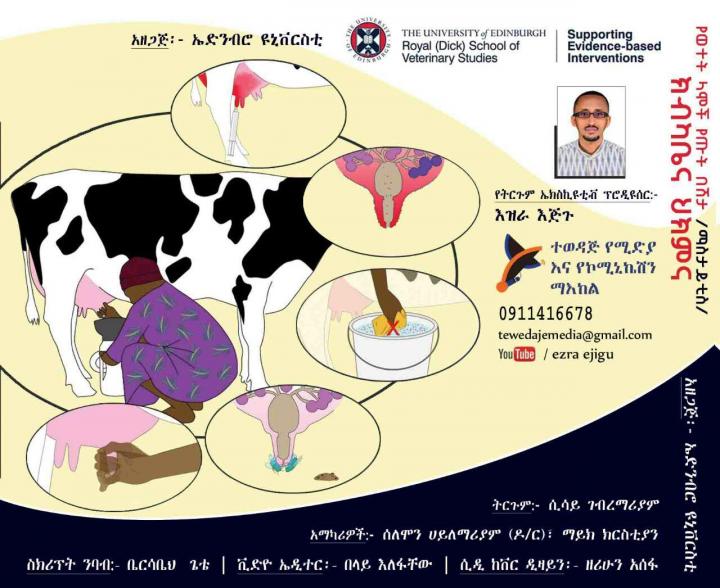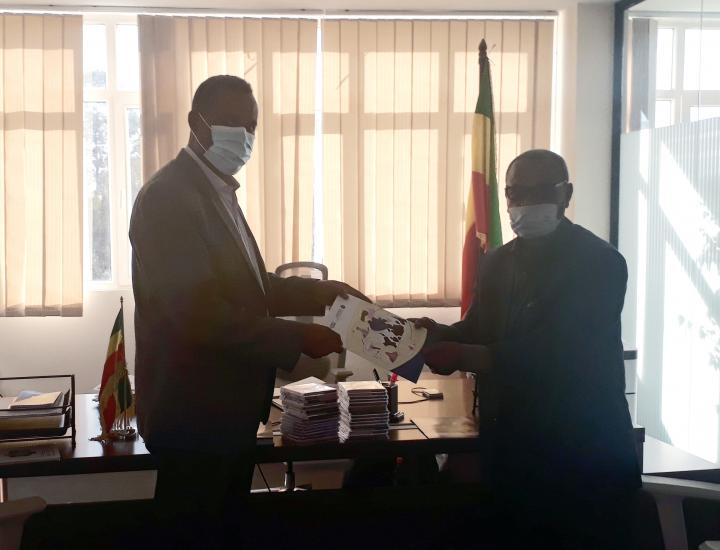Ethiopia’s dairy sector welcomes mastitis training materials
New tool aims to boost milk production and improve animal health

By Vanessa Meadu
Ethiopia’s dairy sector has a new tool to tackle mastitis, a bacterial infection of udder tissue that impacts milk production and leads to poor animal health. New mastitis management training materials developed by SEBI-Livestock and local partners, are now being disseminated to veterinarians, extension agents and farmer groups across the country. The training materials use animated videos that provide clear and easy-to-follow examples of good on-farm practices. These practices help improve hygiene and reduce infection, and will ultimately improve milk quality and production.
Dairy for development
Ethiopia faces a shortage of locally-produced milk. As part of its development plan, the Ethiopian Government is planning to implement a number of strategies that increase the supply of milk to meet demand. A key intervention is around managing mastitis, which is the most common disease of dairy cows and the most common reason that cows are treated with antibiotics. While managing mastitis has clear benefits for milk production, these non-pharmaceutical interventions will reduce antibiotic usage and the risk of antimicrobial resistance. The government has now recognized the harmful economic impact of mastitis on the dairy industry and the need for better management strategies.
Training suited to local requirements
The training materials are designed to help extension workers and livestock-keepers use simple, low-practices to improve udder hygiene and reduce the incidence of mastitis. SEBI-Livestock developed these materials in 2019-2020 based on interventions developed by Mike Christian (SEBI-Livestock) and Prof. Janak K. Vidanarachchi (University of Peradeniya). The openly-licensed videos were initially tested and refined in Nigeria, and have been designed to be adapted for different users. An accompanying technical handbook provides instructions for localising the original content, including how to translate audio and subtitles.

In Ethiopia, Dr Solomon Hailmariam, senior consultant to SEBI, helped adapt the content into two languages, Amharic and Oromofika. These materials were recently presented to the government via his Excellency Dr Fikru Regasa, Minister of State for Livestock Development of the Ministry of Agriculture, who committed to disseminate these to Ethiopian dairy farmers through national training institutions and farmers’ associations. The Ethiopian Young Vets Network have disseminated online versions to their members. The materials will soon be shared with the Ethiopian Veterinary Association (linking all veterinarians and farmers) and the Ethiopian Bioeconomy Center, which trains model and master farmers all over the country
Looking ahead
“This handover marks the conclusion of our mastitis intervention and training work in Ethiopia,” said SEBI-Livestock Director Prof Andy Peters. “We are happy to have established a strong relationship with the Ministry of Agriculture and other local partners, and look forward to seeing the impacts of this training for Ethiopian dairy farmers,” he said.
Learn more:
There are 11 videos and 28 illustrations available to download, reuse and share. All these resources are Copyright © The University of Edinburgh, but openly licensed under a Creative Commons Attribution 4.0 International License.
Resources

